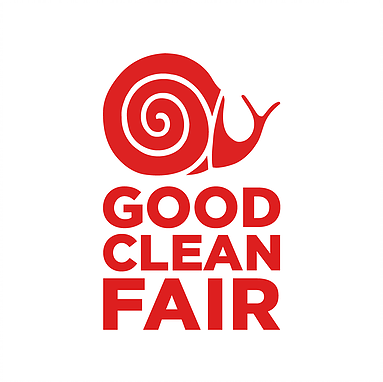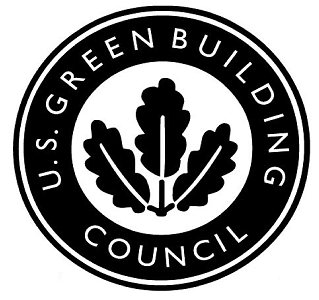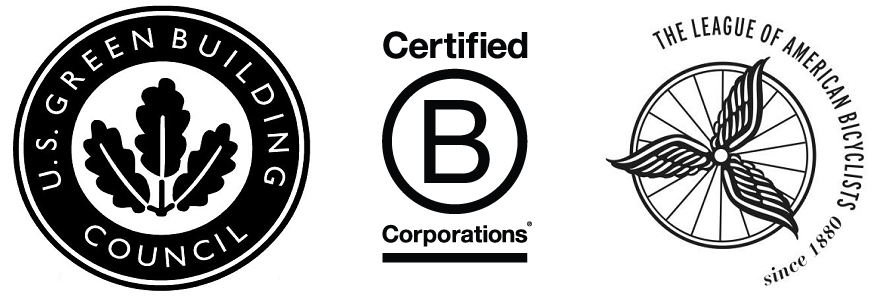Consumers and employees alike are starting to demand that the companies they support share their values. By participating in voluntary certification programs, businesses can demonstrate that they value sustainability and attract the talent and patronage of like-minded people.
Idea
Visit the website of any public-facing business today, and you are likely to find a statement related to sustainability or corporate responsibility. Exceptional products and services and low prices are no longer sufficient to satisfy consumers in many industries. Investors are considering more than than the just the economic bottom line. No longer content with good compensation and working conditions, many employees seek to belong to organizations that are making positive changes in their communities. Although a well-written sustainability policy may differentiate a business from its competitors, it can be difficult for a stakeholders to know how committed the company is to enacting this policy. To address this shortcoming, organizations have sprouted up that offer third-party certification for nearly every aspect of sustainability. Third-party certification provides evidence that the company is committed to "walking the walk", and builds trust with stakeholders.
Goal
Make Whitehall businesses aware of third-party sustainability certifications and their benefits, and convince businesses to pursue certification.
Objectives
- Identify existing certified businesses and promote them using the Around Town page.
- Assign a city staff member to serve as a business sustainability liaison
- Communicate third-party certification options and benefits to city businesses through forums such as the Chamber of Commerce, service organizations, and fraternal organizations.
- Recognize business sustainability achievements using city social media outlets.
Examples
The following table identifies several third-party sustainability certification programs that may be of particular interest to Whitehall businesses.
| Organization | Description |
|---|---|
 Organization: B Lab Program: B Corp certification |
All for-profit businesses are interested in the economic component of sustainability. The "B Corp" certification program allows businesses to differentiate themselves by demonstrating their commitment to the other two "E's" of sustainability: environment and (social) equity. Companies complete an impact assessment that is reviewed and scored by B Lab. If the impact score is 80 or greater, the company can obtain certification as a "B Corp" and can use the B Corp logo, among other benefits. Certification requirements tailored based on business size. |
 Organization: League of American Bicyclists Program: Bicycle Friendly Business |
Businesses wishing to demonstrate their commitment to active transportation can pursue a "Bicycle Friendly Business" designation from the League of American Bicyclists. The application process consists an online questionnaire (preview) that asks about engineering, encouragement, education, and evaluation activities that the business has conducted in support of cycling. Depending on the level of commitment that is demonstrated, the business may receive a Bronze, Silver, Gold, or Platinum designation. In addition to being authorized to display the Bicycle Friendly Business certification logo, awarded businesses are recognized in a national press release, through the League's social media and on their interactive awards map. |
 Organization: Slow Food Columbus Program: Snail of Approval |
The "Snail of Approval" program by Slow Food Columbus recognizes businesses in the local food system that are "good, clean, and fair". That is, they must demostrate that their food is tasty and healthy, has low environmental impact, and that all participants in the chain of production are treated fairly. Participation in the program is by invitation only, however their board of directors accepts suggestions. |
 Organization: U.S. Green Building Council Program: LEED Certification |
LEED (Leadership in Energy and Environmental Design) is a widely-used green building rating system in which applicants are awarded Certified, Silver, Gold, or Platinum designation depending on the environmental sustainability of their building or building project. LEED status can be earned for many building types and during any phase of the building lifecycle, from new designs to historic buildings. Applicants must satisfy pre-requisites prior to starting the certification process. They then choose which "credits" to pursue from a list of options. Each credit is worth a certain number of points, and the total points achieved determines the level of designation that is awarded. |
Other sustainability-related business certifications include:
- EnergyStar - Administered by the EPA, this designation is commonly used for consumer appliances, however it can also be awarded for buildings and plants that demonstrate efficient use of energy.
- Green Business Bureau - Green Business Bureau certification provides a way for businesses to demonstrate their commitment to environmental sustainability.
- WELL Building Standard - The International WELL Building Institute awards certifications for buildings that meet standards to promote human health and well-being.
- Sustainable SITES Initiative - The Sustainable SITES Initiative recognizes sustainable landscape design practices.
- WasteWise - The EPA-administered WasteWise program recognizes organizations who demonstrate how they reduce waste, practice environmental stewardship and incorporate sustainable materials management into their waste-handling processes.
Connection to Other Plans
Depending on the type of certification selected and the activities the business chooses to pursue to obtain that certification, the effort may satisfy any of the following elements of the MORPC Regional Sustainability Agenda:
| Element | Description |
|---|---|
| 1.1 | Reduce vehicle miles traveled (VMT). |
| 1.2 | Reduce the percentage of commuters driving alone and increase the percentage of commuters riding transit, biking, or walking. |
| 1.3 | Increase the percentage of vehicles using alternative fuels. |
| 1.4 | Increase the number of trail miles traveled annually. |
| 1.5 | Increase the number of alternative fuel stations. |
| 1.6 | Reduce per capita energy consumption across all sectors. |
| 1.7 | Increase the number of local renewable energy projects and generating capacity. |
| 2.1 | Reduce emissions to meet federal air quality standards. |
| 2.2 | Increase the number of people receiving air quality information and education. |
| 2.3 | Reduce the amount of municipal solid waste per capita disposed in the landfill. |
| 2.4 | Minimize greenfield development and promote infill and redevelopment. |
| 2.5 | Reduce per capita water consumption. |
| 2.6 | Improve water quality in the Upper Scioto Watershed. |
| 3.1 | Increase the number of businesses in Central Ohio with established sustainability policies and practices. |
| 3.2 | Increase the number of adopted institutional purchasing policies that support the purchase of local food. |
